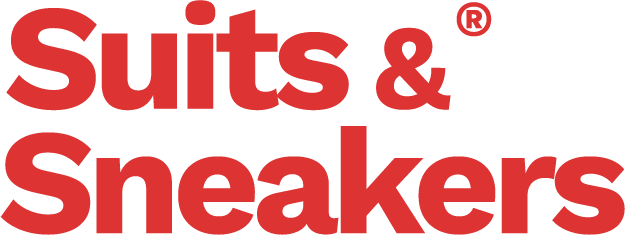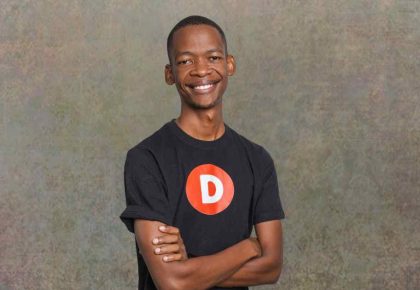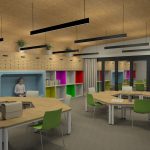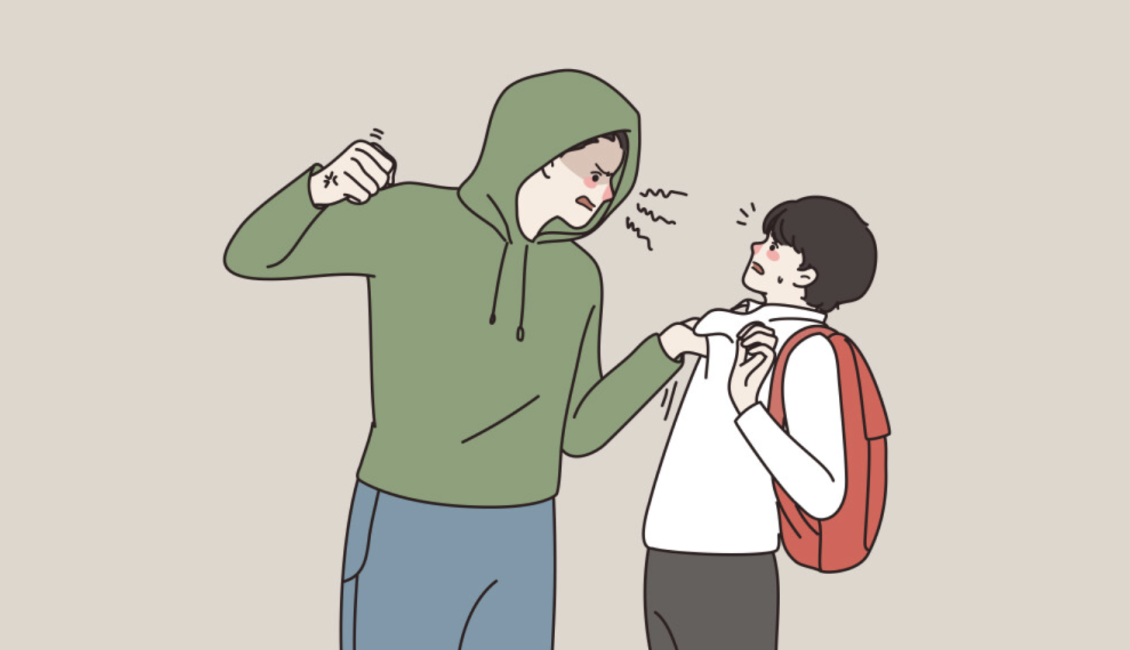
Let me state as simply as possible that if we wish to grow South Africa’s economy and drastically reduce unemployment, we must prioritise the growth and support of small businesses.
While this may seem like a bold claim, I’d like to use this blog post to provide context and evidence to back it up. I also have to add that there are countless areas in South Africa that need change but this post focuses on what’s within the control of each one of us. Now let’s get on with the show ❤️
As the great Charlie Munger famously said: “Show me the incentives, and I’ll show you the outcome.”
Corporate companies and small businesses operate with fundamentally different incentives. Understanding these differences reveals why small businesses are essential for sustainable growth:
1️⃣ Corporates prioritise short-term profit, often through cost-cutting, automation, and shareholder returns, which can overshadow long-term community investments.
2️⃣ Large corporations prioritise streamlining operations to reduce costs, improve output, and maintain a competitive edge in their respective markets. Efficiency becomes a core metric for success, often prioritised over flexibility or innovation.
3️⃣ Corporations aim to dominate their industries by expanding their market share and creating strong market positions that make it hard for smaller businesses to compete.
4️⃣ Risk Management: With significant resources and stakeholders, corporates are heavily risk-averse. Their decision-making processes often prioritise stability and predictability, even at the cost of innovation or social impact.
For the sake of the point I’m trying to make in this post, I’m not saying these goals are bad (although many corporate companies push the moral limit), but my point is that small businesses work differently and are therefore incentivised differently:
1️⃣ Entrepreneurs often start businesses to solve a problem and create meaningful impact on their communities and/or industries. They generally start with little to no resources which means that they are extremely efficient with minimal capital (often their own).
2️⃣ Small businesses recycle most of what they earn back into the economy very quickly. Revenue has to be reinvested into the business and local economy, while profits are rarely distributed to shareholders.
3️⃣ Scaling a small business almost always requires hiring people. Because small businesses operate with fewer resources, growth almost always relies on people rather than heavy investments in technology or infrastructure. Employees are integral to sustaining and driving expansion.
For these reasons and many many, this is why supporting small businesses and creating a support structure for them is a powerful action. Every rand spent with them creates a ripple effect of goodwill and growth. To further prove the value of small businesses in the South African economy, consider the following:
✅ SMEs are the largest contributors to employment in South Africa, employing around 60% of the workforce and generating over 75% of new jobs.
✅ Over the last decade, SMEs have contributed between 52% and 57% to South Africa’s GDP, making them essential drivers of economic activity.
✅ SMEs provide employment opportunities for individuals who might otherwise be excluded from the formal labour market, such as those in rural areas, or those not considered by large corporations. There also tends to be a personal relationship between owner and staff which fosters greater learning on the job.
✅ SMEs foster innovation by introducing new products, services, and business models tailored to local markets. Their agility and adaptability allow them to respond quickly to changing market conditions, fostering a dynamic and competitive business environment.
Despite the undeniable impact small businesses have on our economy and on reducing unemployment, they face numerous challenges that hinder their growth and survival:
❌ Limited Market Access: SMEs often lack marketing expertise, networks, or visibility to compete with larger corporations.
❌ Skills Deficit: Many business owners struggle as a result of not understanding financial management, strategy, and how to operate their businesses efficiently.
❌ Funding Constraints: Accessing capital is difficult due to a lack of collateral, credit history, or formal business plans. The banking ecosystem is predominantly designed to cater to large corporations, with metrics and lending criteria that are misaligned with how small businesses operate. This disconnect leaves many SMEs underserved and unable to secure the funding they need.
❌ Delayed Payments: Late payments by corporates strain SME cash flows, disproportionally hampering growth.
❌ Complex Regulations: Bureaucratic processes and compliance costs divert resources from core activities. Governments often treat corporations and small businesses as if they operate with the same resources.
I just have to share an example in this case: Labour regulations assume SMEs have the capacity of large corporations, making it overly difficult and costly for small businesses to hire unless absolutely necessary. These one-size-fits-all policies actually inhibits SME growth and discourages job creation.
❌ Economic Instability: Policy uncertainty, fluctuating exchange rates, and power outages disrupt planning and operations.
❌ Crime and Corruption: These risks deter investment, damage property, and disrupt operations.
Added to this, government agencies designated to support small businesses often fall short of their mission due to inefficiencies, bureaucracy, corruption, and a lack of practical implementation.
❌ Agencies like the Small Enterprise Development Agency (SEDA) and others are meant to provide critical resources such as funding, mentorship, and training, but their impact is frequently undermined by slow processes, poor communication, and a disconnect from the real needs of SMEs.
❗️ In other words, the significant contribution of SMEs to the South African economy is contrasted by the high failure rate of these businesses due to the lack of support. If we want to experience growth and reduce unemployment, we’ve got to create an ecosystem that helps more SMEs thrive.
Again, we believe in focusing on things we can control in life. It would be very difficult for us to change the way government and corporates treat small businesses in 2025, but we can immediately build a community around the many small business owners and foster our own growth.
Here is how we plan on doing so:
Scale the Suits & Sneakers Membership Program:
Suits & Sneakers has created a membership based community specifically for small business owners and we currently have 100 members. The goal is to cross 1,000 members before the end of 2025 which will enable us to continue to do the following:
✅ Offer informal education to grow their skillsets through the various Suits & Sneakers events that we host throughout the year. This helps solve the lack of skills and knowledge to manage and grow their businesses effectively
✅ Connect members through regular meet-ups and active citizenship campaigns.
What we personally observed in 2024 is that when small business owners spend more time together, they naturally find ways to support and collaborate with each other. Many of our current members are already collaborating or doing business with each other organically.
The more opportunities we create for connection, the more growth we’ll see. Our goal is to significantly expand membership and create a “network effect,” enabling more small business owners to connect, collaborate, and grow. Maintaining quality is absolutely key so we will continue to interview potential members to ensure the right fit.
Launch The Tryst in Cape Town and strengthen The Tryst in Joburg:
The Tryst in Joburg is already starting to become a clubhouse and hub for small business owners, and we think this is vital in order to continue to connect small business owners regularly. It must also be noted that a clubhouse is different to a coworking space. The very intent of a clubhouse is to connect whereas coworking spaces demand quiet as this is a workplace. Our clubhouses aren’t meant to replace the office of the small business owners.
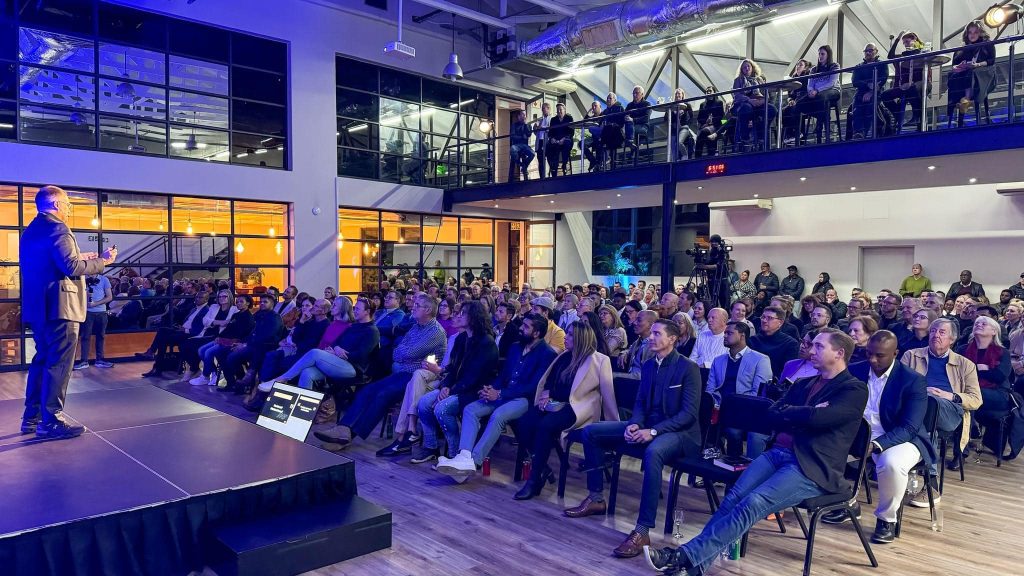
In order to further our plans, we have signed a lease in Woodstock, Cape Town and we will be opening our second edition of The Tryst from February 2025. At first, we will be kicking off with the use of the top floor which will act as our event venue and video studio. By latest February 2026, the full building will be operational, with floors for coworking, private offices, and events.
Provide a marketing and activation hub for small businesses:
As membership continues to grow, we will be able to expand our resources in order to continue regularly discovering small businesses doing great work and promote their stories through social media, videos, and blog posts—all at no cost to them.
An example of this is www.smallbusinessshowcase.co.za, where we highlight amazing small businesses. We promote the site regularly and use Mark Sham’s social media following (over 500,000 people) to amplify these stories. Because no money exchanges hands, people trust the recommendations and engage with the content.

At the Suits & Sneakers Main Event 2024, we offered over twenty-five small businesses the ability to showcase their products and/or services to over 1,600 delegates at no cost. In 2025, we will continue to offer activation opportunities to various small businesses at our events so that they can showcase their products and services at no cost to them.
As a result of increasing membership fees, we will be able to provide below-cost access to The Tryst’s video studios and event spaces to amplify their reach:
📽️ Video studios to create their own marketing content.
👥 Event spaces to host their communities, share knowledge, and collaborate.
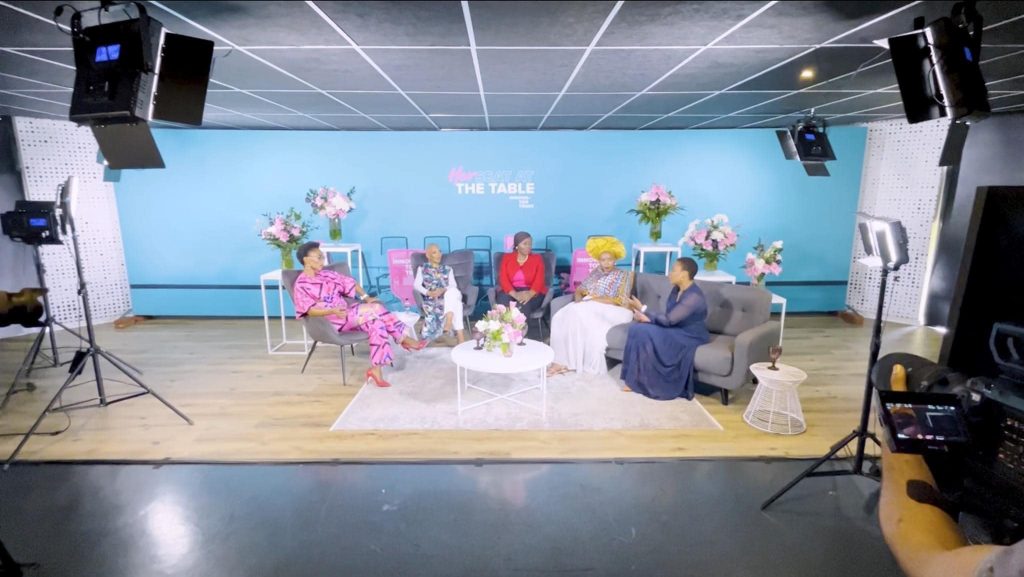
Future Goal: A Small Business Stock Exchange:
Looking ahead, we want to create a stock exchange-like platform for small businesses. This system will let fellow small businesses, and later the public, invest in small businesses and get a solid return. It will also include pitch events and opportunities for small business owners to connect with potential investors.
How are we going to fund our expansion and growth?
Our model combines three revenue streams that fuel The Tryst and Suits & Sneakers, creating a self-sustaining foundation for our mission to support small businesses:
1️⃣ Informal Educational Events
Suits & Sneakers offers monthly public events in both cities, supplemented by two major events in each city every year (in May and November). These events foster community and learning, generate essential income, and also serve as a live advertisement to showcase our work. It’s always more impactful to show people than to tell them.
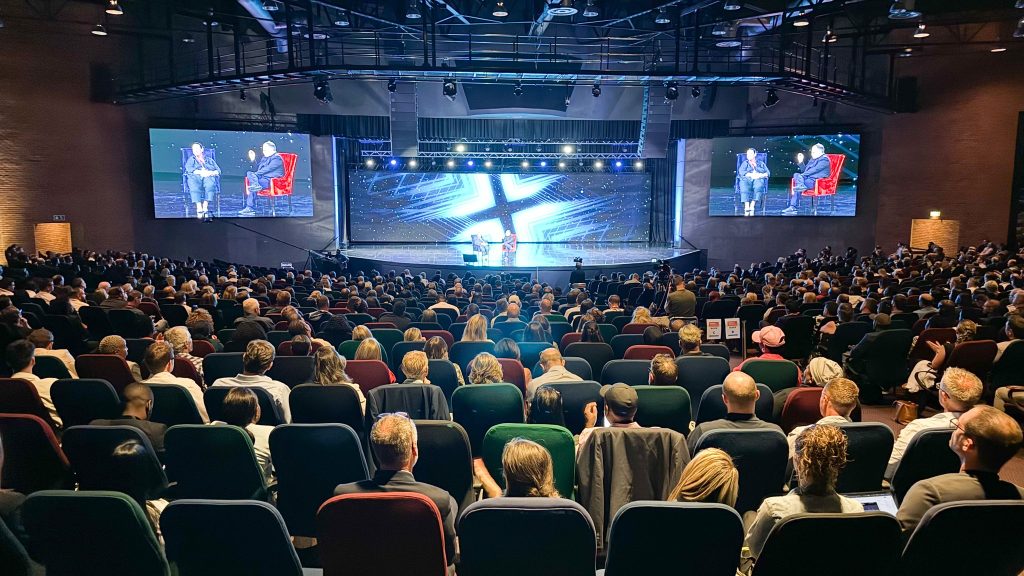
2️⃣ Suits & Sneakers Membership Program
Re-launched in early 2024, the membership program charges R495 per month. This annuity income funds regular events, community meetups, and active citizenship initiatives. Our focus for 2025 is to scale this program, expanding access and deepening our community for small business owners.
3️⃣ Venue Revenue from The Tryst Locations
Each Tryst location acts as a community hub, driving revenue through:
Coffee Shops and Restaurants: Welcoming spaces for networking and individual work.
Meeting Rooms, Desks, and Offices: Flexible options for freelancers, small teams, and creators.
Studios and Workshop Spaces: Professional environments for content creation, training, and creative work.
Event and Video Studios: Public rentals for larger organisations, providing access to our infrastructure.
Beyond revenue, The Tryst serves as a foundational resource that enables Suits & Sneakers to operate and flourish. Suits & Sneakers benefits directly from The Tryst’s facilities and infrastructure, empowering its mission to expand and create impact.
Ultimately, all our revenue serves a larger purpose. Each rand we generate strengthens our ability to support and nurture South African entrepreneurs. By creating a thriving ecosystem for skill development, peer support, and investment, we’re working to ensure that small businesses, freelancers, and creators can not only survive but truly thrive, fostering job creation and driving positive change across the country.
The power of a self-sustaining ecosystem
Our long-term vision of becoming the “guardian angel” for small businesses depends on achieving the financial stability needed to invest back into our community. With strong income and capital reserves, we’re positioned to support these businesses, either through direct monetary investment or through marketing—using The Tryst’s resources to amplify their reach.
This ecosystem’s strength lies in our ability to offer top-quality, revenue-generating services, and as long as we continue to have the support of the small business community, we’re set to build a platform that’s more than just sustainable; it’s transformative for South African entrepreneurs.
The BIG picture: A global network with a South African HEART
In the long run, our goal is to create multiple versions of The Tryst across South Africa and eventually, around the world. Expanding internationally would allow us to build a global community, attract international speakers, and elevate the Suits & Sneakers brand.
Yet, even with global growth, our core mission remains: everything we do is ultimately to make South Africa a better place. By expanding our reach and influence, we’re creating a foundation that serves South African businesses and strengthens their impact on a world stage.
But first, we need to expand to Cape Town and strengthen Joburg
As mentioned, we’ll launch The Tryst in Cape Town in March 2025, initially leasing the top floor of a 2,000-square-meter building in Woodstock. We’re adopting a phased rollout for the top floor, starting with the event venue, followed by the video studio, and then adding the coffee shop and coworking space.
This approach allows us to begin operations while showcasing a full-scale design for the entire building, which will be ready for occupancy by latest February 2026. Each floor will serve a specific purpose:
⬇️ Ground Floor: Co-working and café space that will be accessible daily by members. The way members will pay to use this space is by buying their drinks and food.
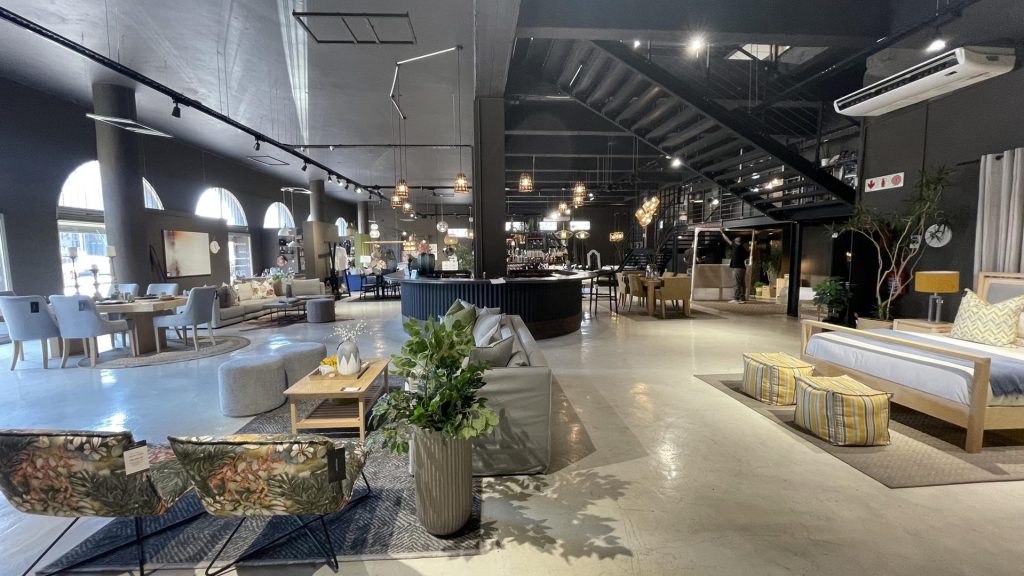
⬇️ Middle Floor: Private offices, private desks, meeting rooms, workshop space, etc. These services will be accessed via a “pay as you use” model within our own app.
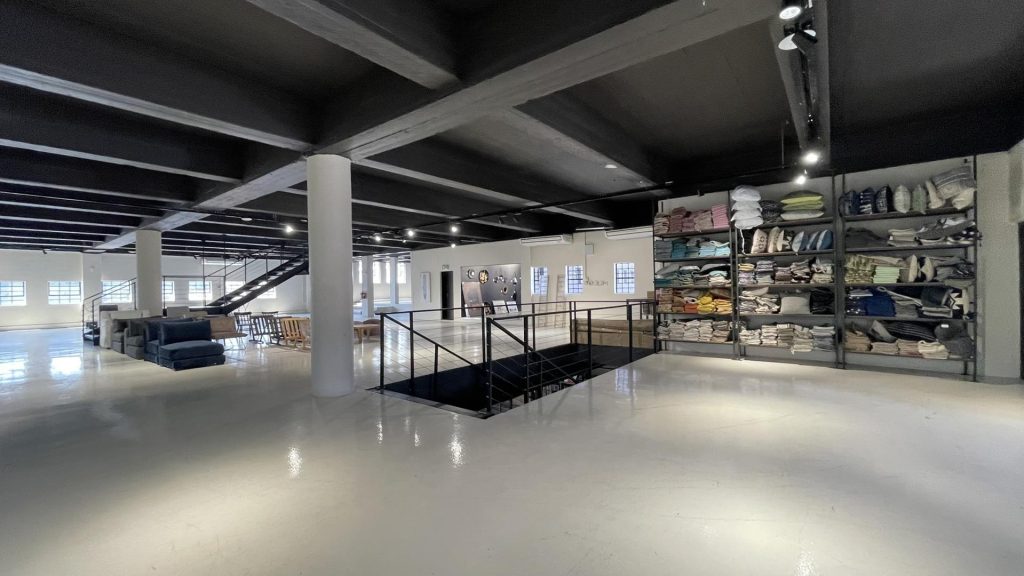
⬇️ Top Floor: A versatile event space that can house around 500 people cinema style.
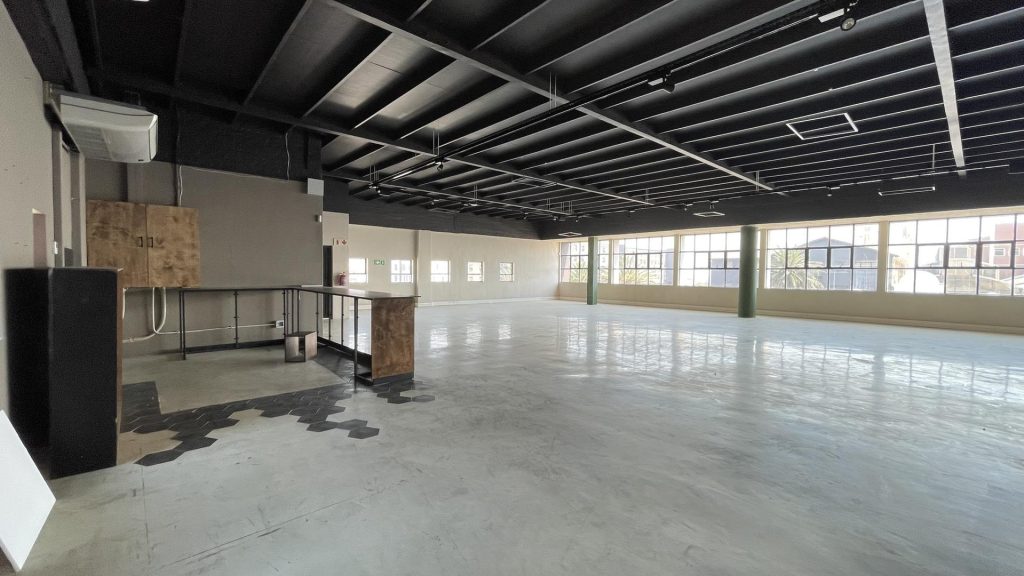
Meanwhile, we remain committed to evolving The Tryst in Johannesburg, with potential upgrades and the possibility of a relocation within a year. More importantly, running Johannesburg and Cape Town side by side expands our footprint and strengthens the Suits & Sneakers Membership Program, allowing members to use either location. This dual-city model not only broadens our reach but also deepens our impact on South Africa’s entrepreneurial ecosystem.
SMEs are the lifeblood of South Africa’s economy—and also the most at risk!
The more research you do and the more you think about this topic, the more obvious it becomes that this ecosystem created by small businesses owners for small business owners MUST EXIST.
The best part? None of what I’ve shared here is just an idea or a concept. Everything I’ve mentioned is already in motion and actively happening. If you are a small business owner and you want to join our network, click here. If you aren’t a small business owner but you’d like to support our cause in another way, please give us a shout.
